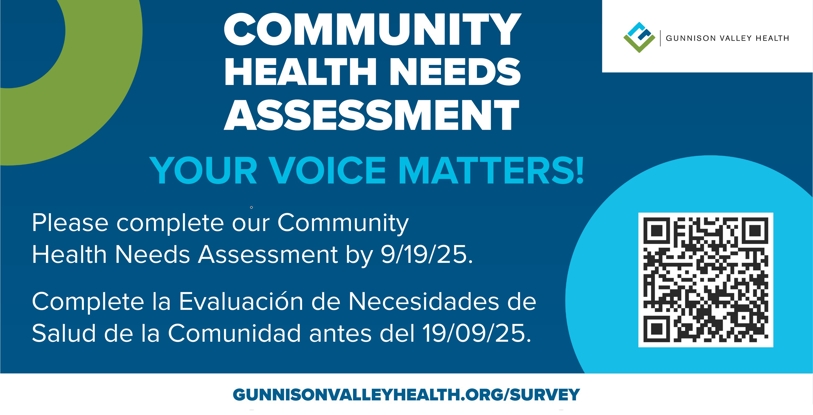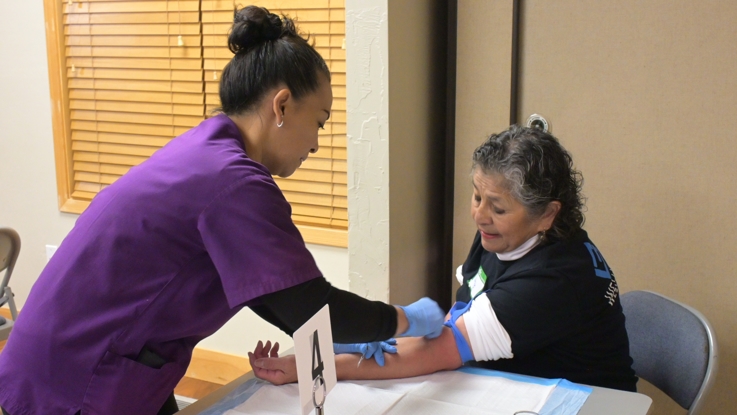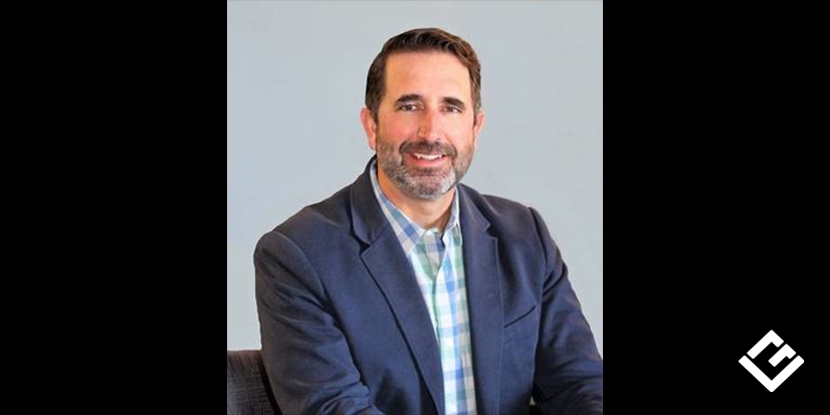Ver esta información en español
Patient Rights, Responsibilities & Health Care Decision Making
The following is an explanation of your rights while in this facility. If you have any concerns about any of these rights, please call the Gunnison Valley Health Grievance Hotline at 855-763-4531.
It is the right of a patient at Gunnison Valley Hospital to:
-
To be informed of visitation rights, including:
- Right to receive visitors, according to the patient’s wishes and consent.
- Right to withdraw or deny consent for visitors.
- To be treated with dignity and respect.
- To effective communication.
- To have cultural and personal values, beliefs and preferences respected.
- To personal privacy and privacy of heath information.
- To pain management.
- To religious or other spiritual services.
- To access, request amendments to, and obtain information on disclosures of health information.
- To have a family member, a friend or another individual present for emotional support during the patient’s stay.
- To be free from discrimination based on age, race, ethnicity, religion, culture, language, physical or mental disability, socioeconomic status, sex, sexual orientation and gender identity or expression.
- To receive information in a manner that is understandable and tailored to the patient’s age, language and ability to understand.
- To receive information in a manner that meets the patient’s needs when they are impaired by vision, speech, hearing or cognitive impairments.
- To be involved in making decisions about care, treatment and services.
- To have the patient’s physician promptly notified of the patient’s hospital admission.
- To refuse care, treatment and services and to receive information about this in writing.
- To have a surrogate decision maker if the patient is unable to make decisions on their own. The surrogate decision maker has the right to refuse care, treatment and services on the patient’s behalf.
- To have family involved in decision making about care, treatment and services.
- To receive information about the outcomes of the patient’s care, treatment and services that is needed to participate in current and future health care decisions.
- To be informed about anticipated outcomes of care, treatment and services that relate to sentinel events.
- To give or withhold informed consent.
- To give or withhold informed consent to produce or use recordings, films or other images for purposes other than the patient’s care.
-
To receive relevant information when deciding whether to participate in
research, investigation or trials, including the following:
- Explanation of the purpose of the research.
- Expected duration of participation.
- Clear description of the procedures involved in the research.
- Statement of the potential benefits, risks, discomforts and side effects.
- Alternative care, treatment and services available to the patient that might prove advantageous.
- To receive information about the individual(s) responsible for and providing the patient’s care, treatment and services.
- To be free from neglect, exploitation and verbal, mental, physical and sexual abuse.
- To have an environment that preserves dignity and contributes to positive self-image.
- To have complaints reviewed by the hospital without being subject to coercion, discrimination, reprisal or unreasonable interruption of care.
- To access protective and advocacy services.
- To discuss with a physician any ethical issues that arise during the course of care.
- To request access to the hospital’s Ethics Committee.
- To receive information about advance directives.
- To have advance directives respected and followed.
- To have issues addressing autopsy and organ donation conducted in a sensitive manner.
- To request and receive pastoral counseling.
- To request and expect the hospital to arrange for the prompt and orderly transfer of the patient’s care to others when the hospital cannot meet the patient’s request or needs for care, treatment and services.
If you are unable to exercise these rights, your guardian or legally authorized agent or representative may exercise on your behalf any of the rights listed above. In certain circumstances, Federal or State laws or regulations may impose certain limitations on your ability, or that of your guardian or legally authorized agent or representative, to exercise the rights listed above.
If an individual or family has a concern about care of safety at Gunnison Valley Health or any of its satellite services, he or she is encouraged to contact the Gunnison Valley Health Grievance Hotline at 855-763-4531. If the concern is not being satisfactorily resolved at the facility level, a formal complaint can be filed with the Colorado Department of Public Health and Environment (CDPHE) by calling toll free 800-886-7675. You may also contact The Joint Commission regarding your quality or safety concern. For more information about The Joint Commission and its standards for hospitals, visit their website at www.jointcommission.org.
Patient Responsibilities
It is your responsibility to:
- To provide information that facilitates care, treatment and services.
- To ask questions or acknowledge when the patient does not understand the treatment course or care decisions.
- To follow instructions, policies, rules and regulations that support quality care and a safe environment.
- To be considerate and respectful when interacting with staff.
- To maintain civil language and conduct.
- To meet financial commitments to the hospital.
- To provide accurate and complete information about health-related matters.
-
To take an active role in making decisions about care, treatment and services
by doing the following:
- Discussing condition and treatment with the practitioner.
- Reporting any changes to condition.
- Providing advance directive and/or expressing wishes regarding use of life support.
- To cooperate with hospital staff who provide care.
- To ask questions if plans or direction of care are not clearly understood.
- To follow and respect the hospital’s rules and regulations about patient care and conduct.
- To be considerate of the rights of other patients and staff.
- To follow guidelines about use of cameras.
- To accept responsibility for actions if treatment is refused or practitioner instructions are not followed.
- To provide the hospital with complete information to process insurance claims.
- To arrange to pay bills within an acceptable time period.
- To be responsible for belongings and not bring unnecessary items or valuables to the hospital.
- To inform staff of all information that may affect care and safety.
THIS IS A NON-SMOKING HEALTHCARE FACILITY.
If you do smoke and are interested in quitting, we encourage you to contact Colorado Quitline at 1-800-QUIT-NOW (784-8869) or coquitline.org for free smoking cessation confidential counseling.
Advance Directives Policy
Gunnison Valley Health recognizes that individuals have the right to make health care decisions. They have the right to accept or refuse treatment and the right to formulate advance directives. We recognize our responsibility to inform patients of these rights.
All adult patients will be asked if they have an advance directive, and the answer will be entered in the medical record. If a patient has an advance directive, a copy of that directive will be requested for the patient’s medical record. We do not condition the provision of care or otherwise discriminate against an individual based on whether or not the individual has an advance directive.
If you would like further information, have questions or would like an advance directive document, please contact case management at 970-641-7209.
Regarding Healthcare Decisions
Federal law now directs that at any time you are admitted to a hospital that receives Medicare or Medicaid funds, you must be told about the state’s laws concerning your right to make health care decisions. This requirement applies to all adult patients no matter what the medical condition.
Health care decisions are very important and require careful thought. You may wish to consult your doctor, your family, your friends and your attorney.
- You have the right to consent to (accept) or refuse any medical care or treatment unless care has been ordered by a court. In an emergency, your consent is assumed if you do not or cannot indicate a contrary decision.
- You, your legal guardian, your legal agent or a proxy decision-maker selected in accordance with Colorado law can make health care decisions for you. Colorado has no law automatically allowing the family member closest to you to be a “surrogate” or proxy decision maker for you.
- Because a situation may arise in which you are not conscious or able to make specific health care decisions for yourself, you may want to make your health care wishes and decisions known in advance. You can do this by executing documents called advance medical directives; there are basically three types:
LIVING WILL: A living will is a witnessed legal document that tells the doctor you don’t want to be put on a life support machine when it won’t help you get any better. This advanced directive is voluntarily executed by a person according to the law. A living will goes into effect when you are very sick and not able to communicate your wishes yourself (lack of capacity) AND when you are certified by an examining doctor to have a terminal condition or be in a persistent vegetative state. You can cancel your living will at any time. You can do so orally, in writing or by destroying the document. If you cancel your living will, tell your family, your doctor and anyone who has a copy of it that it has been canceled. Please bring a copy of your living will with you to the hospital. It will become part of your medical record.
DURABLE MEDICAL POWER OF ATTORNEY: A durable medical power of attorney is a legal document authorizing another person who is at least 18 years old to make health care decisions for you if you become temporarily or permanently unable to make them for yourself. The person you name becomes your agent for this specific purpose only. A durable medical power of attorney can authorize any type of health care decisions and is not limited to those situations involving a terminal condition. The document may give broad authority or specific directions. Such a document should be notarized. There is no specific form provided by the Colorado Patient Autonomy Act. The durable medical power of attorney legal document must be in the medical record for these decisions to be exercised.
CPR DIRECTIVE: A CPR directive is a document telling ambulance or other emergency medical personnel, your doctor or any health care facility to which you may be admitted not to administer cardiopulmonary resuscitation – that is, not to take measures to support or restore your heart or breathing functions in the event those functions become difficult or stop. A CPR directive requires a doctor’s signature; forms approved by the Colorado Board of Health are available through physician’s offices.
Proxy Decision Makers
If you execute no advance directive, appoint no legal guardian and are unable to communicate your wishes, medical decisions may be made for you by a person called a proxy decision-maker who is selected by agreement of a group of “interested persons,” usually consisting of your available family members. If the group cannot agree on a proxy decision-maker for you, any one of the interested persons may petition a court to appoint a guardian.
In Summary
No living will, durable power of attorney or a CPR directive will take away your right to make your own health care decisions so long as you are not able to do so. If you have drawn up one or more of these advance directives, it is your responsibility to make them available for inclusion in your medical record.
-












